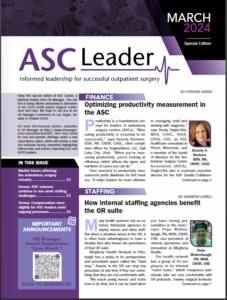
Editorial: OR Business Management Conference tackled financial challenges, technological innovations
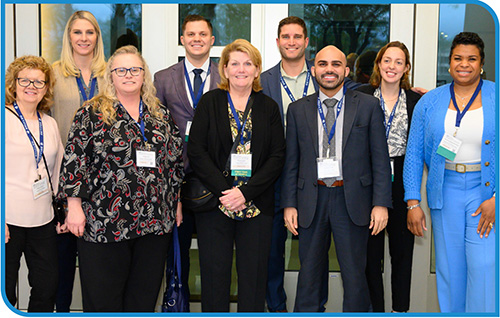
This past February, the OR Business Management Conference, held in Phoenix, Arizona, brought together business managers of all walks of life. The intimate event was once again a symbiotic blend between financial- and business-centric education and high-quality networking. The education offered for seasoned and new business leaders alike, perhaps more…
Surgical scrub evolution and the future of smart medical attire

For surgeons and other medical professionals, what to wear to work is more than just an afterthought. Over the decades, surgical scrubs have undergone a significant transformation, evolving from simple, functional garments to sophisticated attire that prioritizes both comfort and infection control. They are not merely clothing but a vital…
Decade of salary data shows mix of small gains, stagnation for OR leaders

Takeaways OR leaders have experienced financial gains over the past 9 years, but not enough to keep up with inflation in recent years. Capital and operating budget responsibilities have increased over the past 6 years. Since 2015, OR leaders have consistently been most satisfied with their current job, but much…
How data puts the ‘value’ in value-based care

What if a surgeon decided to perform a procedure on a patient that was not totally necessary? It happens more often that one might realize. As recently as August 2023, Forbes published an article that cited a Harvard Business Review report stating that over 50% of lumbar spine surgeries are…
 Blog Post Procedural sedation analgesia considerations for ASC leaders
Blog Post Procedural sedation analgesia considerations for ASC leaders
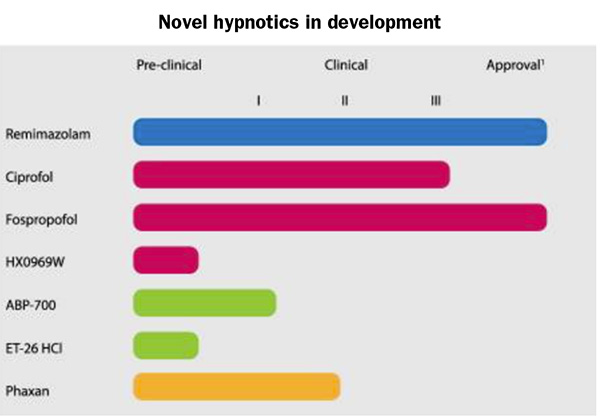
The promise of quicker recovery and fewer complications from sedation, anesthesia, and pain management have drawn clinicians and patients alike to procedures performed in ambulatory surgery centers (ASCs) and other outpatient settings. However, sedation, anesthesia, and analgesia add their own risks to those of the procedure itself. Understanding the latest…
A look back: 10 years of staffing data show scope of challenges for OR leaders

Takeaways The COVID-19 pandemic exacerbated staffing problems, and although some parameters have improved, challenges remain. Surgical volume took a sharp drop during the pandemic but is now rebounding. Over the years, the gap in difficulty between recruiting RNs and recruiting STs has narrowed. Last month, OR Manager looked back on…
Unveiling ECRI’s 2024 top 10 health technology hazards list
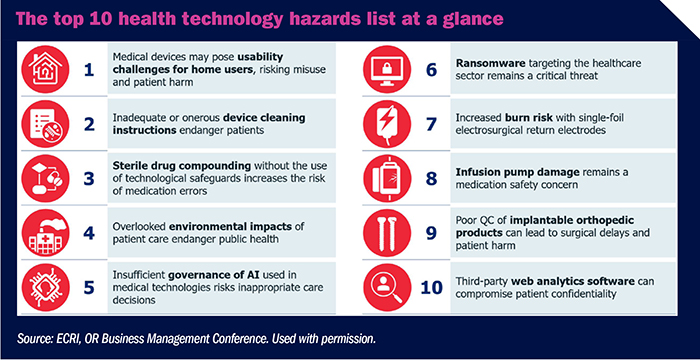
What is the purpose of the top 10 health technology hazards list, released every year by ECRI? “Our number one goal at ECRI is to reduce preventable harm,” stresses Jason Launders, MSC, former director of operations, device evaluation, at ECRI. “We know that every healthcare provider has a lot they…
Breaking down the surgical gown: Disposable versus reusable, latest innovations
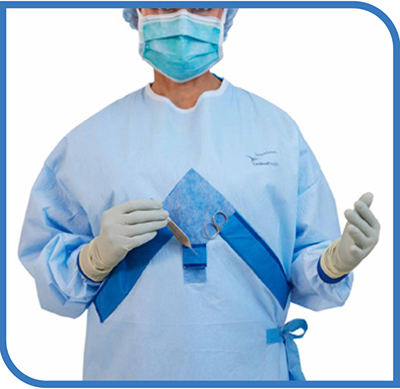
There is movement happening in the world of surgical gowns. It is driven in part by the COVID-19 pandemic, which brought new focus to the need for adequate stockpiles of personal protective equipment (PPE)—and for PPE that works as intended. Staff need to know their gowns incorporate the latest technology…
TPG announces investment in Compass Surgical Partners to fuel growth in ASC joint ventures
San Francisco & Raleigh, North Carolina—(BUSINESS WIRE)—TPG (NASDAQ:TPG), a leading global alternative asset management firm, today announced a significant strategic investment in Compass Surgical Partners (“Compass” or the “Company”), an independent full-service ambulatory surgery center (ASC) development and management partner. TPG Growth, the firm’s middle market and growth equity platform,…
Blast from the past: Improving medication safety in the OR
The US Food and Drug Administration receives more than 100,000 medication-related reports, and some of them, according to the AORN Journal, “involve patient death.” AORN’s 2024 updated guidelines include safety updates for perioperative staff when handling, transporting, and administering medication, which can be a complex process prone to errors. In…

